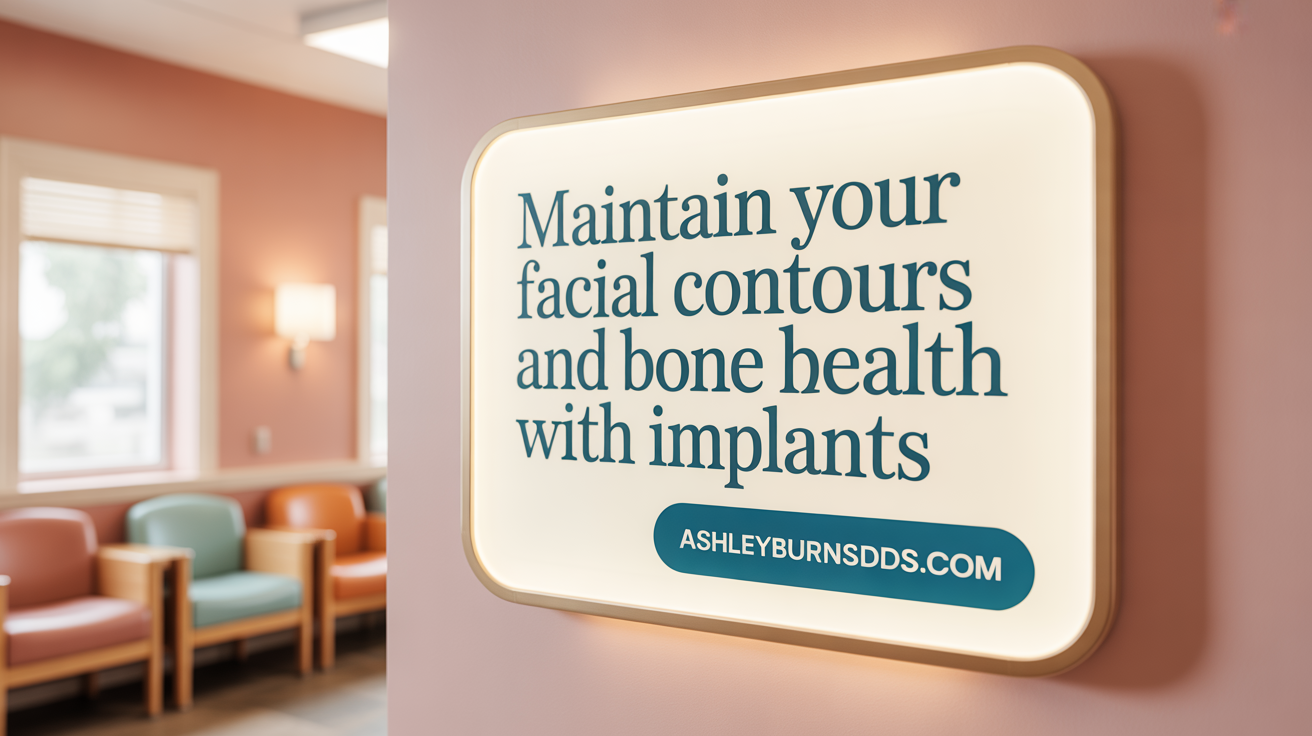Understanding the Shift Towards Implant-Supported Dentures
Implant-supported dentures are transforming oral health solutions for those with missing teeth, offering distinct advantages over traditional dentures. By anchoring dentures firmly within the jawbone, they not only restore function and aesthetics but also promote long-term oral and overall health. This article explores the comprehensive benefits implant-supported dentures provide, emphasizing their impact on stability, jawbone preservation, comfort, and durability.
Enhanced Stability and Functionality Compared to Traditional Dentures

How do implant-supported dentures compare to traditional dentures in terms of stability and oral health benefits?
Implant-supported dentures offer significant advantages over traditional dentures, especially in terms of stability and overall oral health.
Traditional dentures rest on the gums and rely on suction or adhesives to stay in place. Their lack of anchoring can lead to slipping or shifting during eating, speaking, or laughing. This instability can cause discomfort and reduce confidence.
In contrast, implant-supported dentures are securely anchored to titanium implants surgically placed into the jawbone. This firm attachment prevents movement, providing a more natural feeling and a secure fit.
Different attachment methods, such as bar-retained, ball-retained, or fixed implants, help in maintaining stability. These methods significantly improve the chewing ability, allowing for a wider variety of foods and better nutrition.
Beyond comfort, implant support plays a vital role in preserving jawbone density. It stimulates the bone, preventing the resorption that commonly occurs with traditional dentures.
This stimulation helps maintain facial contours and avoids the sunken or aged appearance associated with bone loss. Alternatively, traditional dentures do not support the jawbone, leading to gradual deterioration over time.
Overall, implant-supported dentures provide not just better stability, but also enhance oral health and facial aesthetics, making them a more reliable long-term solution.
Preserving Jawbone Health and Facial Structure for the Long Term

How do dental implants improve oral health?
Dental implants significantly enhance overall oral health by serving as artificial roots that replace missing teeth. This helps restore essential functions like biting, chewing, and speaking, which can be compromised with traditional dentures. A notable benefit is their ability to stimulate the jawbone, preventing deterioration that often occurs with missing teeth.
Jawbone stimulation provided by implants prevents bone resorption, a process where bone density decreases over time due to lack of use. This continuous stimulation helps maintain the integrity of the bone in the long run.
Maintaining the jawbone is vital to preserving facial contours and preventing a sunken or shrunken appearance that typically results from bone loss.
Implants also support surrounding teeth, reducing the risk of misalignment or further dental complications. They contribute to better oral hygiene since they are easier to clean and do not trap plaque as traditional dentures or bridges might.
Incorporating implant-supported dentures creates a stable foundation that keeps facial structure intact, ensuring that patients retain a natural look and feel. Proper maintenance and regular dental checkups further prolong the benefits, making implants a durable, long-term solution for oral health.
Types of Implant-Supported Dentures and Customized Solutions

What types of denture implants are available?
Patients seeking implant-supported dentures have several options tailored to their needs, each offering distinct advantages. Traditional implant-supported dentures typically involve placing multiple titanium implants into the jawbone to provide a secure base for either removable or fixed dentures. These include overdentures, which can be taken out for cleaning, and hybrid fixed dentures that are permanently attached.
A popular choice for full-arch replacement is the All-on-Four system, which uses four strategically angled implants to support a complete set of teeth. This approach allows for immediate placement of a full arch of teeth, minimizing downtime.
Bar-retained dentures involve attaching a custom metal bar to the implants. The denture clips onto this bar with precision, offering enhanced stability and easier removal for cleaning. Alternatively, snap-in (or clip-in) overdenture systems connect the denture to attachments on the implants, providing a secure fit while also being removable.
For those with limited bone density or seeking less invasive procedures, mini dental implants are an effective solution. These smaller implants require less surgical intervention and are often used to stabilize lower dentures, improving comfort and function.
Varieties of implant-supported dentures
| Type | Description | Best suited for | Longevity | Additional details |
|---|---|---|---|---|
| Traditional Implant-Supported Dentures | Multiple implants supporting removable or fixed dentures | Patients with sufficient jawbone density | 10-20 years | Requires surgical placement of several implants |
| All-on-Four | Four angled implants supporting full arch | Patients with significant tooth loss | 15-25 years | Immediate placement possible |
| Bar-Retained Dentures | Metal bar attached to implants supporting denture | Patients needing enhanced stability | 10-15 years | Clips can be replaced or adjusted |
| Snap-In Overdentures | Attachments clip onto implants, removable | Patients seeking secure yet flexible solution | 10-20 years | Easier maintenance |
| Mini Dental Implants | Smaller size, minimally invasive | Patients with limited bone or seeking lower-cost options | 10-15 years | Suitable for lower dentures |
Customized Solutions for Different Needs
Dental professionals assess individual cases to recommend the most appropriate type of implant-supported denture. Factors such as jawbone health, the number of missing teeth, budget, and personal preferences influence the choice.
These solutions are crafted to match natural teeth in appearance, improve stability, and provide long-term comfort. Advances in implant technology allow for tailored treatments that can restore function, aesthetics, and confidence.
Search more about
types of implant-supported dentures and attachments
Longevity, Maintenance, and Success Rate of Implant-Supported Dentures

How long do implant-supported dentures last?
Implant-supported dentures are designed to be durable and long-lasting. The titanium implants typically last a lifetime with proper care, thanks to their biocompatibility and strength. The prosthetic denture component usually needs replacement or adjustment roughly every 8 to 10 years, depending on wear and oral health habits.
What are the maintenance requirements?
Maintaining implant-supported dentures involves regular cleaning, similar to natural teeth. Patients should brush them twice daily, floss around the implants, and visit their dentist for routine check-ups. Unlike traditional dentures, these do not require adhesives and are easier to keep clean. Proper maintenance is vital to prevent plaque buildup and ensure the longevity of both the implant and the prosthetic.
Why is ongoing oral hygiene important?
Proper daily oral hygiene helps prevent infections such as peri-implantitis—an inflammation around the implant caused by bacteria. This condition can compromise the stability of the implant and lead to failure if not addressed. Regular visits to the dentist for professional cleaning and assessment further support the health of the implants and surrounding tissues.
What is the success rate of implant-supported dentures?
The success rate of these dental restorations generally ranges from 95% to 98%. This high percentage reflects the reliability of modern dental technology, the biocompatibility of materials like titanium, and the skill of dental professionals. Factors influencing success include sufficient jawbone density, adherence to oral hygiene practices, and overall health conditions such as diabetes.
Are implant-supported dentures cost-effective in the long run?
Although the initial investment can be higher compared to traditional dentures, their durability and reduced need for repairs make them more economical over time. Properly maintained implants can last decades, minimizing replacement costs. Fewer adjustments and repairs also contribute to their cost-effectiveness, making them a smart long-term choice for many patients.
| Aspect | Details | Additional Notes |
|---|---|---|
| Durability | Titanium implants can last a lifetime | Denture parts typically last 8-10 years |
| Maintenance | Regular brushing, flossing, dental visits | Prevents infections and implant failure |
| Success Rate | 95-98% | Influenced by oral hygiene and health |
| Cost-Effectiveness | Long-term savings | Fewer replacements needed over time |
Opting for implant-supported dentures offers a solution that combines longevity, ease of maintenance, and a high success rate, significantly enhancing oral health and overall quality of life.
Psychological and Quality of Life Improvements Through Implant-Supported Dentures
How do these dentures boost confidence and self-esteem?
Implant-supported dentures significantly enhance a person’s confidence by offering a secure and natural-looking smile. Unlike traditional dentures, their stable fit prevents slipping, allowing individuals to speak, laugh, and smile openly without worry. This stability restores a sense of normalcy and social ease, which can positively impact overall self-esteem.
What is the impact of implant-supported dentures on the worry about dentures slipping?
One of the biggest advantages of implant-supported options is that they eliminate concerns about dentures slipping or moving during eating or talking. Being firmly anchored in the jawbone ensures a snug fit, giving patients reassurance and freedom to engage in social activities without embarrassment or fear of their dentures dislodging.
How does improved speech clarity benefit users?
Implant-supported dentures prevent movement and clicking while speaking, resulting in clearer articulation. This allows users to communicate confidently in social and professional settings, reducing frustration associated with traditional dentures that can slip or produce noise.
What are the enhancements in comfort and taste sensation?
These dentures do not cover the palate or tightly rub on gums like traditional ones, leading to increased comfort. Additionally, because they often leave the palate uncovered, they help users enjoy the full taste of their food, improving the overall dining experience and satisfaction.
How do these improvements influence social interactions and overall wellbeing?
The psychological boost from feeling more confident and comfortable encourages more active social engagement. Enhanced appearance, better speech, and comfort contribute to a higher quality of life, greater social participation, and improved mental wellbeing. Patients often report feeling happier, more attractive, and less self-conscious after transitioning to implant-supported dentures.
The Implant-Supported Denture Procedure and Patient Eligibility
Initial consultation and assessment
The journey to an implant-supported denture begins with a thorough consultation. During this phase, the dentist evaluates the patient’s overall oral health, examines jawbone density, and discusses treatment goals. Advanced imaging techniques, such as 3D scans, help determine the best placement for implants and identify any need for pre-treatment like bone grafting.
Surgical implant placement and healing
Once assessed, the surgical phase involves placing titanium implants into the jawbone. This process is minimally invasive and usually not painful thanks to local anesthesia. After placement, a healing period of three to six months allows the implants to fuse securely with the bone in a process called osseointegration. This integration provides a stable foundation for the dentures.
Temporary dentures and final fitting
While the implants heal, patients often wear temporary dentures for daily function and aesthetics. After successful osseointegration, custom-made dentures are securely attached to the implants. This final fitting ensures a natural appearance and optimal function, allowing patients to enjoy improved chewing, speech, and confidence.
Bone density and oral health prerequisites
Candidates generally need sufficient jawbone density to support the implants. However, advanced surgical techniques often enable those with some bone loss to qualify through bone grafting. Good oral hygiene and overall health are crucial for the longevity of the implants, making routine dental care an essential part of long-term success.
Candidate suitability and advanced techniques
Most individuals with missing multiple teeth, including those with some bone deterioration, are suitable candidates. The procedure is adaptable with different implant types such as bar-retained, ball-retained, or overdentures, tailoring solutions to specific needs. Proper candidate selection and technology ensure the durability and effectiveness of implant-supported dentures, often lasting decades with appropriate care.
Embracing Implant-Supported Dentures for Long-Lasting Oral Health
Implant-supported dentures stand out as a superior dental solution, merging stability, aesthetic appeal, and critical health benefits that traditional dentures often lack. By preserving jawbone integrity and offering a natural, comfortable fit, they not only restore essential oral functions but also enhance overall quality of life and confidence. With a lengthy success record and options tailored to individual needs, implant-supported dentures represent a cost-effective, durable choice for those seeking lasting oral health improvements. Embracing this innovative dental technology paves the way for sustained oral wellness and an improved sense of wellbeing.
References
- Implant Supported Dentures: A (Potentially) Life-Changing Treatment
- How Implant Supported Dentures Can Benefit Your Oral Health
- The Benefits of Implant Dentures Compared to Traditional Dentures
- What Are the Benefits of Implant Supported Dentures?
- Are Implant-Supported Dentures Worth It? Benefits, Costs & What to ...
- Implant Overdentures: Their Benefits for Patients - PMC
- Why Choose Implant Supported Dentures? Top Benefits Explained
